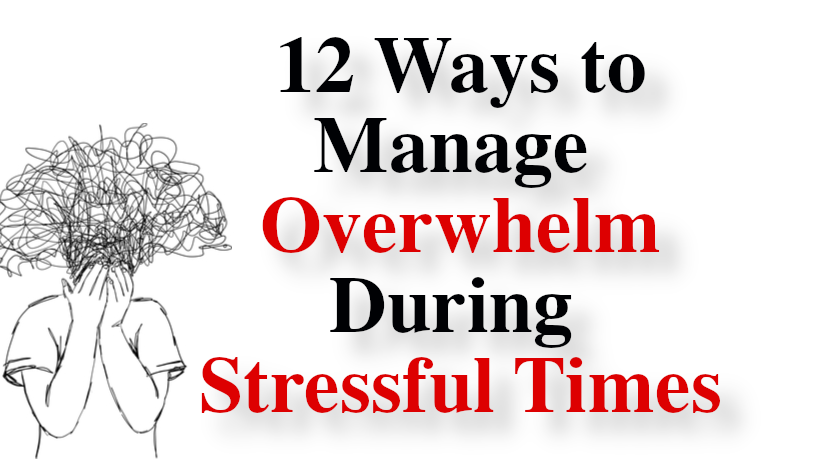The current COVID-19 pandemic has everyone in a state of perpetual panic and frazzle. Many of us are learning to live with a new normal – whether it’s learning to work from home with kids running around the house all day or running meetings via video. In this new normal, things appear to take longer than you intended to, and you feel like you’re troubleshooting all the time. All of this is enough to induce a sense of overwhelm.
Feeling overwhelmed is a state of being. It has more to do with how you manage your time and energy than the actual content in your life. Some of the symptoms of overwhelm include feeling anxious and constantly burdened, and you may find yourself feeling irritable and annoyed. It’s important to have awareness about the way you feel.
Here are some things you can do right now:
- Acknowledge overwhelm: Not only is it important to be aware of the feelings of overwhelm but also to acknowledge them to yourself or someone you trust.
- Take a break – It’s OK to give yourself the space to slow down, so you can see the bigger picture and get a handle on things. Take a day or two to rest, do nothing, and regroup. Center yourself so that you have the energy to make wiser, healthier decisions.
- Unplug regularly: In today’s tech-driven world, finding ways to unplug from technology becomes all the more important. Avoid checking Instagram or emails first thing when you wake up. Create “unplug time” when everyone sets aside their smartphones and plays a board game or takes a nature walk or connects through a shared family activity.
- Say NO more often: It’s OK to say no to things, activities, and people who are not in line with your goals, passions, and values. You can gently, but assertively, let the person know that you’re unavailable or unable to do something. Remember “No” is a complete sentence.
- Evaluate your priorities: When you feel overwhelmed, pause and step back to figure out what’s urgent versus what’s important and where you need to focus your time and energy. Create to-do lists and prioritize the most important tasks first.
- Learn to let go: Sometimes it’s wise to let go of things that no longer serve your interests. Lin Yutang said, “besides the noble art of getting things done, there is the noble art of leaving things undone. The wisdom of life consists in the elimination of nonessentials.” As you evaluate your priorities, think about what you can let go, and what you can delegate and to whom.
- Delegate: Do you have to do it all yourself? If the answer is no, then don’t. Share the load. And don’t forget, you don’t have to be the boss to delegate. You can often simply ask colleagues and friends for help. They’ll give you the chance to return the favor sometime.
- Commit to less: While this may sound like you’re being unproductive, committing to less can help you stick to your goals. Having too much to do often has to do with unrealistic goal setting and over-committing your time and energy. Are you being overly ambitious? Are you not being realistic about your goals and what you can really do?
- Exercise: Take an hour or so out of your day to get physically active. Go for a run or walk. When the gym is closed (like they are now in this pandemic), participate in an online class or follow along with your favorite instructor on a fitness app. Exercising helps release endorphins, which help elevate mood and lower stress.
- Practice mindfulness: The practice of mindfulness is about becoming more aware of where you are and what you’re doing, without becoming overly reactive or overwhelmed by what’s going on around you. Meditation or yoga are other practices that help center your thoughts and give clarity when the sense of overwhelm takes over.
- Organize and de-clutter: Often, the clutter and disarray in our physical environment can cause mental overwhelm. Clearing your living and working spaces has a calming effect. Organizing expert Marie Kondo provides amazing insights and actionable tips on how to tidy up and simplify your life. Take this from someone who’s reaped the benefits immensely.
- Keep a gratitude list: When you find yourself overwhelmed and unable to get things done, reframe your thoughts to focus on everything going for you in your life – your family, career, the roof over your head, friends in your life, your hobbies, your health, etc. Keep a journal next to you and when you wake up in the morning or before you fall asleep or both, write down two-to-three things for which you’re grateful.



